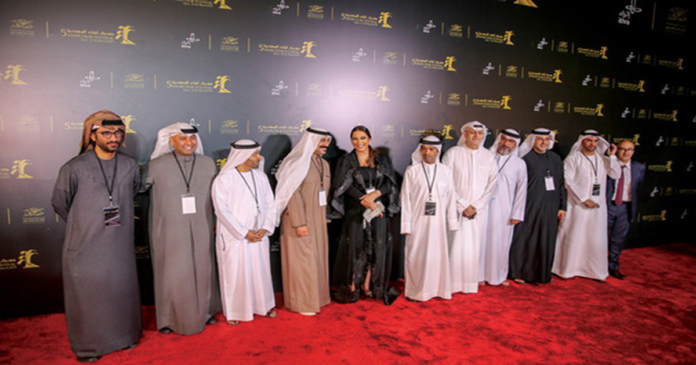At the Cannes Film Festival this week, Naomi Campbell was accompanied by one of the most influential guys in film. Notably, he represents a nation where films were outlawed until five years ago.
Saudi growing cinema soft power: Saudi Arabia’s 36-year-old Mohammed Al Turki heads the Red Sea Film Foundation, and his name prominently appears on movie posters and credits at the French Riviera’s largest film festival.
The organization, established two years ago, hosts its yearly festival and has already supported 168 films, including eight films that are part of this year’s Cannes official selection.
One of these was the festival opening, “Jeanne du Barry,” starring Johnny Depp as a French prostitute who falls in love with King Louis XV.
Others also appeared to be at odds with conventional Saudi values, including female-focused films like “Four Daughters” concerning the radicalization of Tunisian girls by religion or “Goodbye Julia” about a Sudanese woman and her domineering, conservative husband.
“We have learned to respect other cultures,” Red Sea Film Foundation head Emad Iskandar told AFP.
The French director of “Jeanne du Barry,” Maiwenn, qualified since her father is Algerian; according to him, the exact criteria are unclear. He said that the organization focused on Arab and African filmmakers.
Iskandar continued, “We want to serve the region as long as we have the resources, but we also want to take the chance to learn more.
Al Turki sponsored a banquet for ladies attended by Catherine Deneuve, Katie Holmes, and Naomi Campbell.
“MO!! Campbell praised Al Turki on Instagram, writing, “Proud of all your doing @redseafilm creating a history of many 1st’s and Changing the narrative.
What is whitewashing?
Under Crown Prince Mohammed bin Salman, the de facto ruler of the country, Saudi generosity for the arts has soared, with billions flowing into formerly taboo fields like music, fashion, and sports.
Human Rights Watch states Saudi Arabia intends to “whitewash its dismal rights record.” Despite recent improvements, the country still suppresses civil society, executes dissidents, discriminates against women, and obstructs the investigation into the 2018 murder of writer Jamal Khashoggi.
But most Saudis support the reforms, and the government says it is unrealistic to expect the country to transform overnight into a liberal utopia.
Whitewashing accusations “saddened us more than anything else,” Iskander said.
“Come to Saudi Arabia, learn about it, and talk to us. After many years of conflicts and discussions, the West has got where it is. Please be patient; our state is 90 years old.
In any event, the persistent PR effort is bearing fruit. “Saudi Arabia’s attendance at Cannes felt less contentious than that of Johnny Depp, who is still largely regarded as poisonous following his legal dispute with ex-wife Amber Heard.”
The kingdom’s ambition in “producing films and allowing artists to emerge” was lauded by Cannes director Thierry Fremaux.
He told Variety that “Saudi Arabia is changing.”
‘More and more present.’
Advertisers plastered advertisements all over Cannes, urging producers and directors to film in Saudi Arabia. The country’s pavilion showcased the talents of its up-and-coming directors.
Saudi Arabia requests a larger pavilion, more amenities, and a greater presence every year, according to Guillaume Esmiol, director of the Cannes Film Market, which runs concurrently with the festival.
The rival Qatari government funded 13 films at Cannes this year, including three in the main category, making Saudi Arabia not the only nation in the area making significant investments in the film industry.
Some people’s ties to the Middle East are tenuous at best.
“We have a lot of French productions,” Doha Film Institute CEO Fatma Hassan Alremaihi told AFP.
“We don’t want to be exclusive; we want our filmmakers to be accepting of and willing to collaborate with filmmakers from other places.”
She has no reservations that these investments were made to promote Qatar’s soft power.
“Who does that not do? That’s what American Hollywood movies do… At least we act by our convictions without losing who we are.

